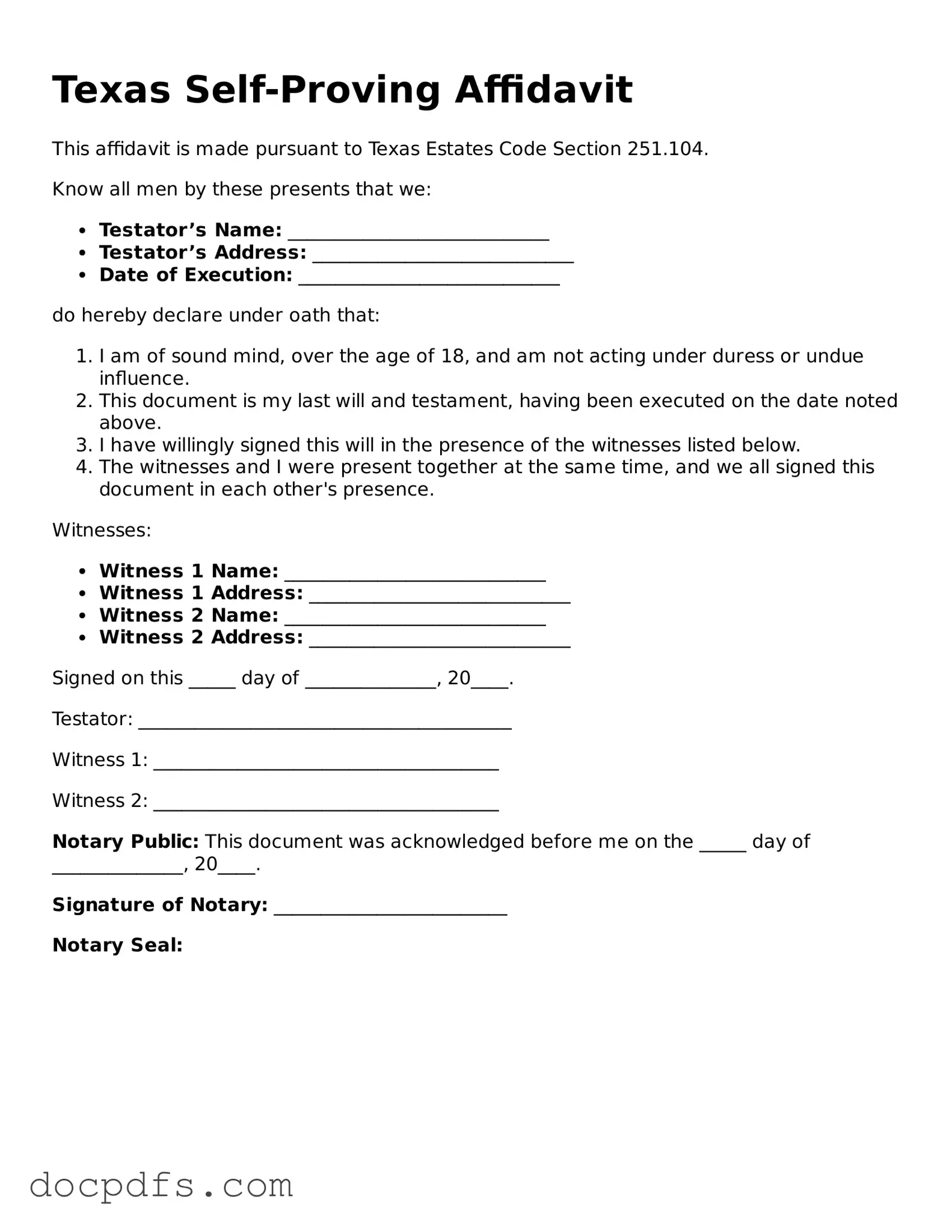What is a Texas Self-Proving Affidavit?
A Texas Self-Proving Affidavit is a legal document that allows a will to be validated without requiring the witnesses to testify in court. It is typically signed by the testator (the person making the will) and the witnesses in front of a notary public. This affidavit simplifies the probate process by confirming the authenticity of the will.
Why should I use a Self-Proving Affidavit?
Using a Self-Proving Affidavit can save time and reduce complications during the probate process. It eliminates the need for witnesses to appear in court, making it easier for your loved ones to settle your estate. This can provide peace of mind, knowing that your wishes will be honored without unnecessary delays.
Who can sign a Self-Proving Affidavit?
The Self-Proving Affidavit must be signed by the testator and at least two witnesses. All parties involved must be of sound mind and at least 14 years old. Additionally, the affidavit must be notarized to be valid.
How do I complete a Self-Proving Affidavit?
To complete a Self-Proving Affidavit, follow these steps:
-
Prepare your will and have it signed by you and your witnesses.
-
Draft the Self-Proving Affidavit, including the necessary information about the testator and witnesses.
-
Have all parties sign the affidavit in front of a notary public.
Is a Self-Proving Affidavit required in Texas?
No, a Self-Proving Affidavit is not required in Texas. However, it is highly recommended as it can streamline the probate process and help avoid potential disputes regarding the validity of the will.
Can I create my own Self-Proving Affidavit?
Yes, you can create your own Self-Proving Affidavit, but it must meet specific legal requirements to be valid. It is advisable to use a template or consult with a legal professional to ensure that all necessary elements are included.
What happens if I don’t use a Self-Proving Affidavit?
If you do not use a Self-Proving Affidavit, your witnesses may need to testify in court to confirm the validity of your will during the probate process. This can lead to delays and additional costs, potentially complicating the distribution of your estate.
How long is a Self-Proving Affidavit valid?
A Self-Proving Affidavit remains valid as long as the will it accompanies is valid. There is no expiration date on the affidavit itself, but any changes to the will may require a new affidavit to be executed.
Can I revoke a Self-Proving Affidavit?
You can revoke a Self-Proving Affidavit by creating a new will or by explicitly stating your intention to revoke the previous will and its affidavit. It’s important to follow the legal procedures for revocation to ensure clarity and avoid disputes.
Where should I keep my Self-Proving Affidavit?
It is essential to keep your Self-Proving Affidavit in a safe place, along with your will. Inform your loved ones about its location. Consider storing it in a safe deposit box or with an attorney to ensure it is accessible when needed.

